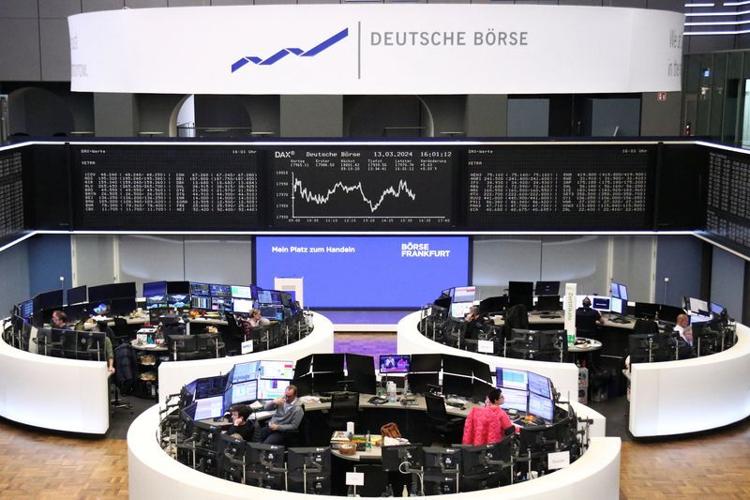
As inflation worries surpass AI fever, stocks decline
Global markets fell on Friday, heading towards a weekly loss, as data indicating a pick-up in U.S. inflation offset positive sentiment following robust earnings from Nvidia, the company that invented artificial intelligence.
The MSCI global share index (.MIWD00000PUS), opens new tab, fell 0.2% and was expected to lose 0.9% for the week after reaching intraday highs earlier in the week. The Stoxx 600 share index for Europe (.STOXX), opens new tab, was down 0.5%.
The $2.6 trillion chipmaker Nvidia (.NVDA), opens new tab, has contributed almost a third of the returns on the U.S. stock market this year, so traders were on edge for days leading up to its quarterly earnings on Wednesday.
Although polls indicated that U.S. business activity was increasing, companies were also reporting higher prices across a range of input categories, from labor to timber. Despite this, the AI giant’s shares have increased 12% this week, but they haven’t been able to improve overall attitude.
The S&P 500 share index on Wall Street is down 0.7% this week, despite expectations from stock futures that it will rise somewhat on Friday.
According to minutes from the Federal Reserve’s most recent meeting, which were made public on Wednesday, if inflation does not gradually decline to the target of 2%, some policymakers may think about raising benchmark interest rates above their current 23-year high of 5.25%–5.5%.
In contrast to 150 basis points (bps) at the beginning of the year, traders only anticipate 35 bps of Fed rate reduction in 2024.
According to Neil Birrell, chief investment officer of Premier Miton Investors, if higher rate projections continue to push up the income rates on government bonds and make stocks look less appealing in comparison, the stock market may not rise much higher.
“Earnings are strong but the bar for the sort of upside surprise needed to push markets higher is rising,” he stated.
“A rise in (U.S.) Treasury yields back towards 5% is the sort of thing people get worried about.”
When the yield on the benchmark 10-year Treasury bond reached 5% in October, stocks took a knock. This important debt yield, which increases as the security’s price decreases in anticipation of higher interest rates, hit 4.498% on Thursday and was last at 4.475%.
Investment bank Baird’s managing director of U.S. equities, Ross Yarrow, stated that it was not the right moment to sell out of the tech stocks that drive the global and American equity markets.
“There are significant risks in not owning stocks that have become very large contributors to the market,” he stated.
“But inflation, and specifically inflation driven by oil, is also a big risk.”
ECB CUTS IN JUNE
Although the European Central Bank (ECB) has all but promised to drop interest rates in June, its policymakers have cautioned that additional easing may not be necessary because they anticipate that inflation, which has significantly decreased, would continue to remain over their 2% objective until 2025.
With its latest yield of 2.57%, the yield on Germany’s 10-year bund has increased more than it has in a week since mid-April.
The dollar index, which compares the value of the US dollar to a basket of six important competitors, rose 0.4% this week to 105.06, the highest level since mid-April. The dollar has appreciated 0.4% vs the euro and around 0.9% versus the weakening yen of Japan.
After hitting a two-month high of $1.2761 on Wednesday due to data indicating UK inflation did not decline as much as anticipated in April, sterling remained weak on Friday at $1.269.
In the wake of heavy political turbulence, British Prime Minister Rishi Sunak said on Wednesday that a general election would take place on July 4. Polls indicate that Keir Starmer, the competitor from the Labour Party, has a significant lead and might become the country’s sixth leader in eight years.
With the 10-year gilt yield rising by 12 basis points to 4.25% and the interest rate-sensitive two-year yield rising by 16 basis points to 4.5%, British government bonds have lagged their main counterparts this week.
In other news, Brent crude oil dropped 0.5% to $80.98. At $2340 per ounce, gold increased by 0.5%.
All Categories
Recent Posts
Tags
+13162306000
zoneyetu@yahoo.com



